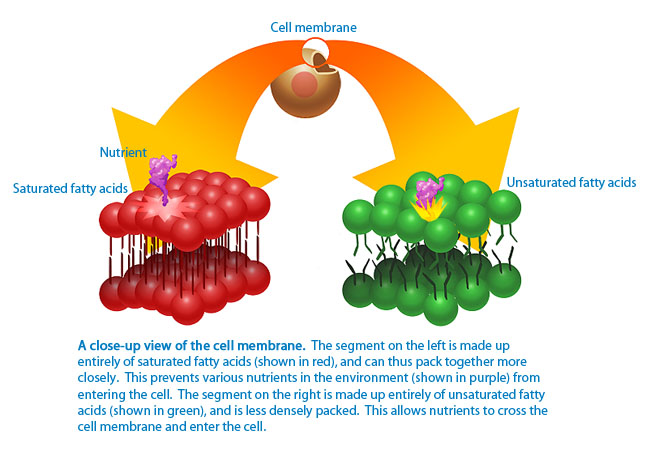The relation between fat and nerve cells.
Nutrition is an integral component of our daily life routine and it has the potential to modulate brain health and function. Although it may at first seem strange, fat is essential for brain development and maintenance. In fact, about two-thirds of the brain is composed of fat, which may come as a surprising statistic. Where is all that fat? It is found in two places associated with nerve cells themselves. First, the protective covering of nerve cells called myelin is 70% fat. More importantly, the membranes of nerve cells are made of a thin double-layer of fatty acid molecules. After the body breaks down fat from the diet into fatty acids, the brain then uses these fatty acids by incorporating them into its cell membranes. Nerve cell membranes are extremely important because their composition determines what is able to pass into and out of the cell. Oxygen, glucose, and the nutrients that the cell needs to survive all must pass through the membrane and into the cell´s interior. When saturated fatty acids are incorporated into normally very fluid cell membranes, they pack very tightly because saturated fatty acid chains have no gaps. Thus, essential nutrients are unable to get into the cell, making the cell less healthy and more prone to injury. In contrast, unsaturated fats can be beneficial to nerve cells because they prevent the tight packing of fatty acids in the membrane. Unsaturated fatty acids have gaps in their chains and these gaps allow for a certain amount of “fluidity.”
http://web.stanford.edu/group/hopes/cgi-bin/hopes_test/fatty-acids/




